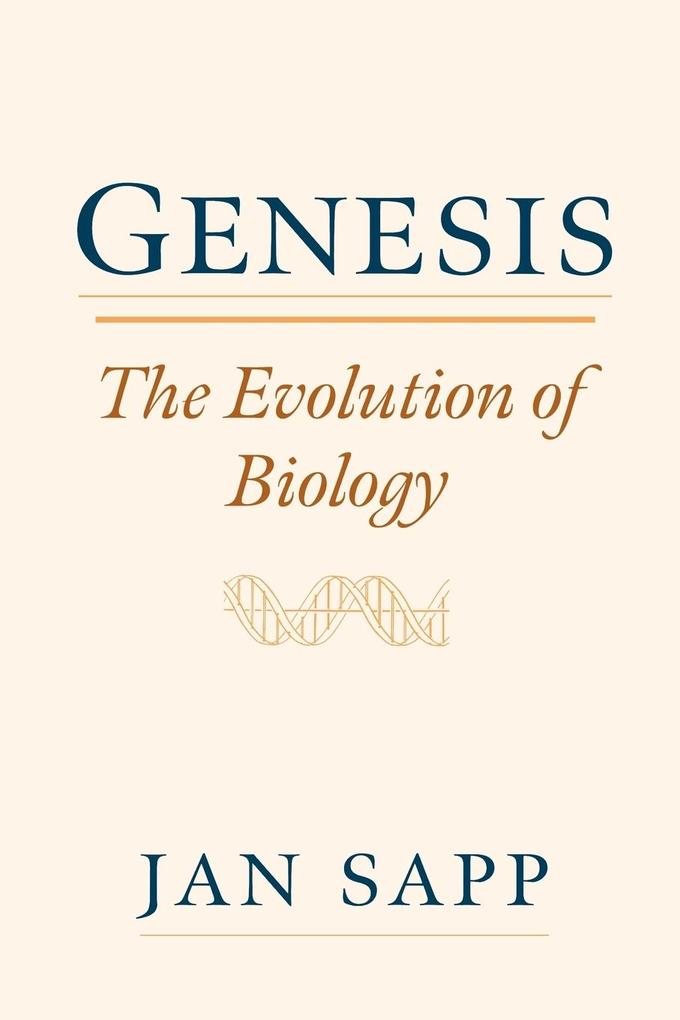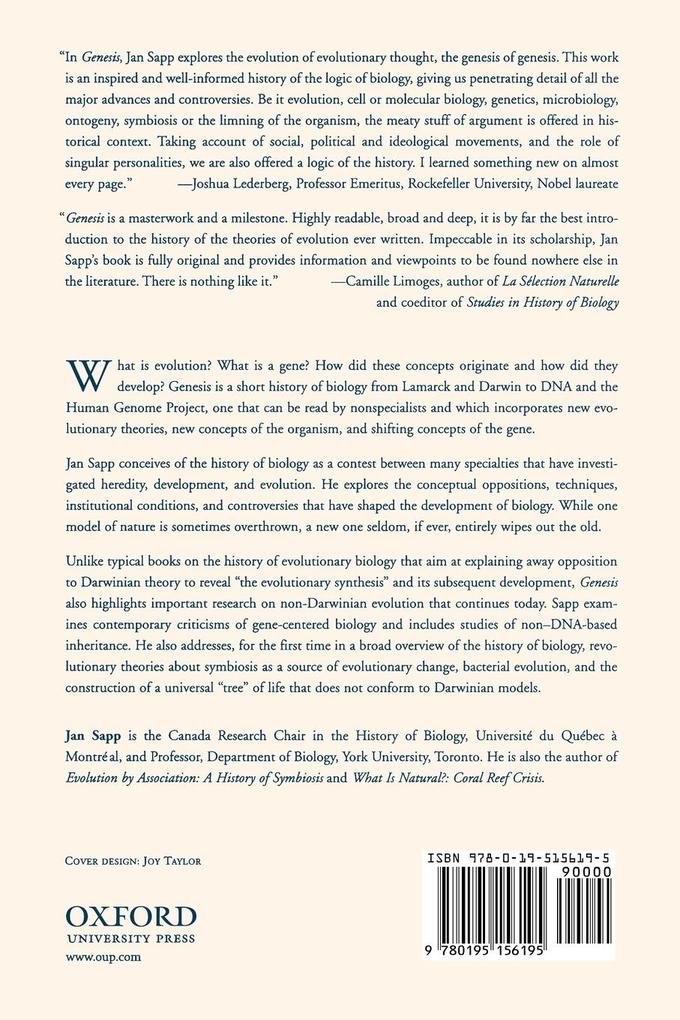
Zustellung: Do, 17.07. - Mo, 21.07.
Versand in 5 Tagen
VersandkostenfreiWhat is evolution? What is a gene? How did these concepts originate and how did they develop? Genesis is a short history from Lamarck and Darwin to DNA and the Human Genome Project, one that can be read by nonspecialists and which incorporates new evolutionary theories, new concepts of the organism, and shifting concepts of the gene. Jan Sapp conceives of the history as a contest between many specialties that have investigated heredity, development, and evolution. He explores the conceptual oppositions, techniques, insitutional conditions and controverrsies that have shaped the development of biology. While one madel of nature is sometimes overthrown, a new one seldom, if ever, entirely wipes out the old. Unlike typical books on tthe history of evolutioary biology that aim at explaining away opposition to Darwinian theory to reveal "the evolutionary synthesis" and its subsequent development, Genesis also highlights important research on non Darwinian evolution that continues today. Sapp examines contemporary criticisms of gene-centered biology and includes studies of non-DNA based inheritance. He also addresses, for the first time in a broad overview of the history of biology, revolutionary theories about symbiosis as a source of evolutionary change, bacterial evolution, and the construction of a universal "tree" of life that does not conform to Darwinian models.
This book presents a history of the past two centureis of biology, suitable for use in courses, but of interest more broadly to evolutionary biologists, geneticists, and biomedical scientists, and general readers interested in the history of science. The book covers the early evolutionary biologists-Lamarck, Cuvier, Darwin, Wallace, etc., through Mayr and the neodarwinian synthesis, in much the same way as other histories of evolution have done, bringing in also the social implications, the struggles with our religious understanding, and the interweaving of genetics into evolutionary theory. What is novel about Sapp's account is a real integration of the cytological tradition, from Schwann, Boveri, and the other early cell biologists and embryologists, and the coverage of symbiosis, microbial evolutionary phylogenies, and the new understanding of complete microbial genomes. The book as a whole will serve as a good introduction to the rise of modern biology over the past two centuries.
Inhaltsverzeichnis
Part I: evolution and revolution; the origin; Darwin's champions; Darwinism and socio-political thought; mutualism; dissent from Darwin. Part II: the myth of cell theory; the body politic; evolving embryology; the egg. Part III: Mendel Redux; emerging genetics; Darwinian renaissance; genes, germs, and enzymes; genetic heresy. Part IV: conceiving a master molecule; beyond the genome; molecular evolution and microbial phylogeny; symbiomics; the evolution of relationships.
Produktdetails
Erscheinungsdatum
01. Mai 2003
Sprache
englisch
Seitenanzahl
388
Autor/Autorin
Jan Sapp
Verlag/Hersteller
Produktart
kartoniert
Gewicht
588 g
Größe (L/B/H)
234/156/21 mm
ISBN
9780195156195
Entdecken Sie mehr
Pressestimmen
This volume is a highly readable, broad, and deep introduction to the history of the theories of evolution . . . Sapp provides incisive details of all the major advances and controversies, be it in evolution, cell or molecular biology, genetics, microbiology, ontogeny, or symbiosis. Plant Systematics and Evolution
Bewertungen
0 Bewertungen
Es wurden noch keine Bewertungen abgegeben. Schreiben Sie die erste Bewertung zu "Genesis" und helfen Sie damit anderen bei der Kaufentscheidung.








